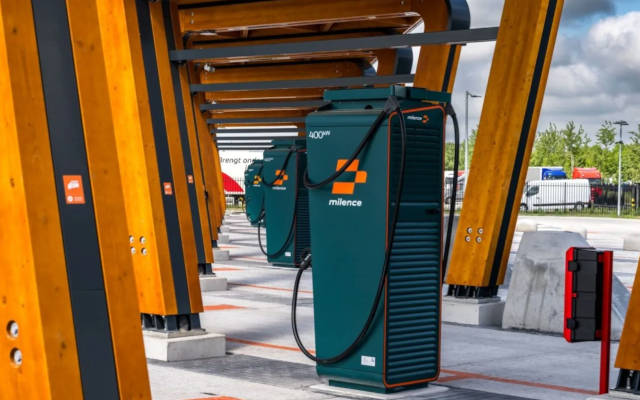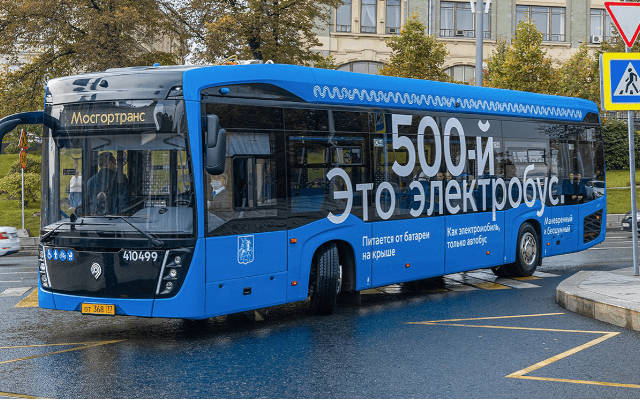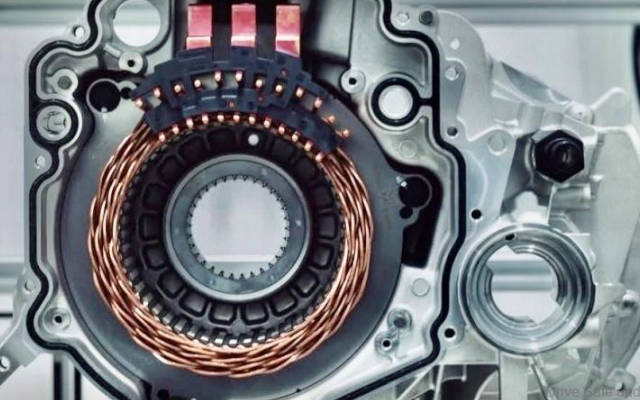 EDITOR'S PICK
EDITOR'S PICK
The Dutch Blueprint: Infrastructure Supercharges EV Adoption
01 Sep 2025 | Synopsis
 The Netherlands leans on its robust EV charging infrastructure rather than incentives alone: with 10.04 charge points per 1,000 people and over 157,000 outlets, it's Europe's densest network - even as the country ranks fourth in EV market share (~35%). Policymakers banned fossil-fuel vehicle sales by 2030 and are phasing down subsidies. Challenges now include rising charging costs - up 13% overall and 25% in Amsterdam.
The Netherlands leans on its robust EV charging infrastructure rather than incentives alone: with 10.04 charge points per 1,000 people and over 157,000 outlets, it's Europe's densest network - even as the country ranks fourth in EV market share (~35%). Policymakers banned fossil-fuel vehicle sales by 2030 and are phasing down subsidies. Challenges now include rising charging costs - up 13% overall and 25% in Amsterdam.Charlie Munger's BYD Bet: Berkshire's Billion-Dollar EV Play
30 Aug 2025 | Synopsis
 Charlie Munger led Berkshire Hathaway to invest $230M in BYD in 2008, recognizing its potential in batteries and EVs. Displayed at the Omaha shareholder meeting, BYD grew into a global EV leader. Berkshire's stake peaked near $9.5B, with over $7B in profit from sales. Now holding under 5%, Berkshire's move reflects Munger's long-term vision and BYD's rise as a vertically integrated powerhouse in electric mobility.
Charlie Munger led Berkshire Hathaway to invest $230M in BYD in 2008, recognizing its potential in batteries and EVs. Displayed at the Omaha shareholder meeting, BYD grew into a global EV leader. Berkshire's stake peaked near $9.5B, with over $7B in profit from sales. Now holding under 5%, Berkshire's move reflects Munger's long-term vision and BYD's rise as a vertically integrated powerhouse in electric mobility.Mercedes-AMG's Axial Flux Revolution: Real Tech, Not Clickbait
30 Aug 2025 | Synopsis
 Mercedes-AMG's axial flux motors from YASA offer up to 4× the torque density of conventional EV motors, enabling compact, oil-cooled drive units with sustained high output. The AMG GT XX concept uses three motors delivering over 1,000 hp and sets the stage for production in 2026. Competing designs from Magnax and Lucchi push efficiency and modularity, but Mercedes leads with centralized deployment on its AMG.EA platform. Axial flux tech outclasses ICE in power, size, and efficiency.
Mercedes-AMG's axial flux motors from YASA offer up to 4× the torque density of conventional EV motors, enabling compact, oil-cooled drive units with sustained high output. The AMG GT XX concept uses three motors delivering over 1,000 hp and sets the stage for production in 2026. Competing designs from Magnax and Lucchi push efficiency and modularity, but Mercedes leads with centralized deployment on its AMG.EA platform. Axial flux tech outclasses ICE in power, size, and efficiency.Moscow's Electric Bus Expansion Amid the Ukraine War
30 Aug 2025 | Synopsis
 Moscow is expanding its electric and autonomous bus fleet, now the largest in Europe, but the Ukraine war has slowed progress. Sanctions and supply shortages hinder access to key tech, forcing a shift to domestic production. Fuel shortages from refinery attacks, cyber disruptions, and strained budgets add pressure. Despite setbacks, Moscow aims to replace diesel buses by 2030, though war-driven economic strain threatens long-term transit modernization.
Moscow is expanding its electric and autonomous bus fleet, now the largest in Europe, but the Ukraine war has slowed progress. Sanctions and supply shortages hinder access to key tech, forcing a shift to domestic production. Fuel shortages from refinery attacks, cyber disruptions, and strained budgets add pressure. Despite setbacks, Moscow aims to replace diesel buses by 2030, though war-driven economic strain threatens long-term transit modernization.Rivian's Maximus Drive Unit Boosts R2 SUV Power Density & Manufacturing Efficiency
30 Aug 2025 | Synopsis
 Rivian's Maximus drive unit, launching with the R2 SUV in early 2026, boosts power density by 40% over previous models. It’s smaller, lighter, and easier to manufacture thanks to a simplified stator, integrated cooling and electronics, and fewer fasteners. A redesigned wiring harness further streamlines production, reduces weight enhancing scalability and efficiency.
Rivian's Maximus drive unit, launching with the R2 SUV in early 2026, boosts power density by 40% over previous models. It’s smaller, lighter, and easier to manufacture thanks to a simplified stator, integrated cooling and electronics, and fewer fasteners. A redesigned wiring harness further streamlines production, reduces weight enhancing scalability and efficiency.
 EVWorld Exclusive
EVWorld Exclusive
Sun vs. Sagebrush: Nevada's Solar Boom Meets Its Wild Heart
12 Oct 2025 |  Nevada's Esmeralda 7 solar project was canceled amid ecological concerns and political pushback. Conservationists opposed its scale and impact on desert wildlife and cultural sites. The Trump administration halted its review, citing regulatory burdens. Though 12 million acres are solar-designated, only 20,000 are developed. Advocates urge smarter siting, wildlife corridors, and use of degraded lands to balance clean energy goals with wilderness protection.
Nevada's Esmeralda 7 solar project was canceled amid ecological concerns and political pushback. Conservationists opposed its scale and impact on desert wildlife and cultural sites. The Trump administration halted its review, citing regulatory burdens. Though 12 million acres are solar-designated, only 20,000 are developed. Advocates urge smarter siting, wildlife corridors, and use of degraded lands to balance clean energy goals with wilderness protection.
EV Alarmism: Common EV Issues Article Analysis
12 Oct 2025 |  The GoBankingRates article highlights real EV concerns - battery costs, charging issues, part shortages, and recalls - but overstates their frequency and impact. Most problems are rare, covered under warranty, or brand-specific. Charging and battery failures are uncommon, and recalls affect gas cars too. The article lacks comparative data and context, making its claims seem more alarming than typical EV ownership realities.
The GoBankingRates article highlights real EV concerns - battery costs, charging issues, part shortages, and recalls - but overstates their frequency and impact. Most problems are rare, covered under warranty, or brand-specific. Charging and battery failures are uncommon, and recalls affect gas cars too. The article lacks comparative data and context, making its claims seem more alarming than typical EV ownership realities.
Rivian's Infotainment Revolution: AI at the Wheel, No Smartphone Required
11 Oct 2025 |  Rivian's infotainment system replaces CarPlay with a native AI-powered interface backed by Amazon and Volkswagen. It offers smart navigation, voice control, music/video streaming, and cloud-based personalization. AM radio is excluded, prompting bipartisan legislation to mandate its return. Autonomous driving integration is planned, with updates rolling out in 2025 and full features expected in the R2 by 2026.
Rivian's infotainment system replaces CarPlay with a native AI-powered interface backed by Amazon and Volkswagen. It offers smart navigation, voice control, music/video streaming, and cloud-based personalization. AM radio is excluded, prompting bipartisan legislation to mandate its return. Autonomous driving integration is planned, with updates rolling out in 2025 and full features expected in the R2 by 2026.
Hydrogen's Flight Path: Fuel Cells, Turbines, and the Economics of Clean Aviation
10 Oct 2025 |  Aviation is shifting from Jet A to four fuel systems: electricity, hydrogen (fuel cell and combustion), SAF, and petroleum. Fuel cells suit short-haul aircraft; hydrogen combustion may power long-range jets. SAF bridges legacy fleets. Hydrogen costs - $5-$7/kg today, possibly $2/kg by 2040 - impact ticket prices and infrastructure decisions. Airport authorities, airlines, and governments will share deployment costs. Each fuel has distinct environmental pros and cons shaping aviation's net-zero future.
Aviation is shifting from Jet A to four fuel systems: electricity, hydrogen (fuel cell and combustion), SAF, and petroleum. Fuel cells suit short-haul aircraft; hydrogen combustion may power long-range jets. SAF bridges legacy fleets. Hydrogen costs - $5-$7/kg today, possibly $2/kg by 2040 - impact ticket prices and infrastructure decisions. Airport authorities, airlines, and governments will share deployment costs. Each fuel has distinct environmental pros and cons shaping aviation's net-zero future.
 12 Oct 2025 14:39:49 UTC |
RECENT PODCASTS
Historic US Emissions - Jaguar - Nuclear Energy - China eVTOL
SEARCH RSSTREAM
 57 New Postings In Past 24 Hours
57 New Postings In Past 24 Hours
Category:mobility
Region:NoAmerica
Date:12 Oct 2025
Category:mobility
Region:NoAmerica
Date:12 Oct 2025
Category:mobility
Region:Global
Date:12 Oct 2025
Category:autonomy
Region:NoAmerica
Date:12 Oct 2025
Category:finance
Region:NoAmerica
Date:12 Oct 2025
Category:autonomy
Region:Europe
Date:12 Oct 2025
Category:mobility
Region:NoAmerica
Date:12 Oct 2025
Category:finance
Region:NoAmerica
Date:12 Oct 2025
Category:autonomy
Region:NoAmerica
Date:12 Oct 2025
Category:policy
Region:NoAmerica
Date:12 Oct 2025
Category:finance
Region:NoAmerica
Date:12 Oct 2025
Category:policy
Region:NoAmerica
Date:12 Oct 2025
Category:finance
Region:NoAmerica
Date:12 Oct 2025
Category:finance
Region:NoAmerica
Date:12 Oct 2025
Category:energy
Region:NoAmerica
Date:12 Oct 2025
Category:mobility
Region:Europe
Date:11 Oct 2025
Category:mobility
Region:NoAmerica
Date:11 Oct 2025
Category:mobility
Region:Global
Date:11 Oct 2025
Category:mobility
Region:AsiaPacific
Date:11 Oct 2025
Category:energy
Region:AsiaPacific
Date:11 Oct 2025